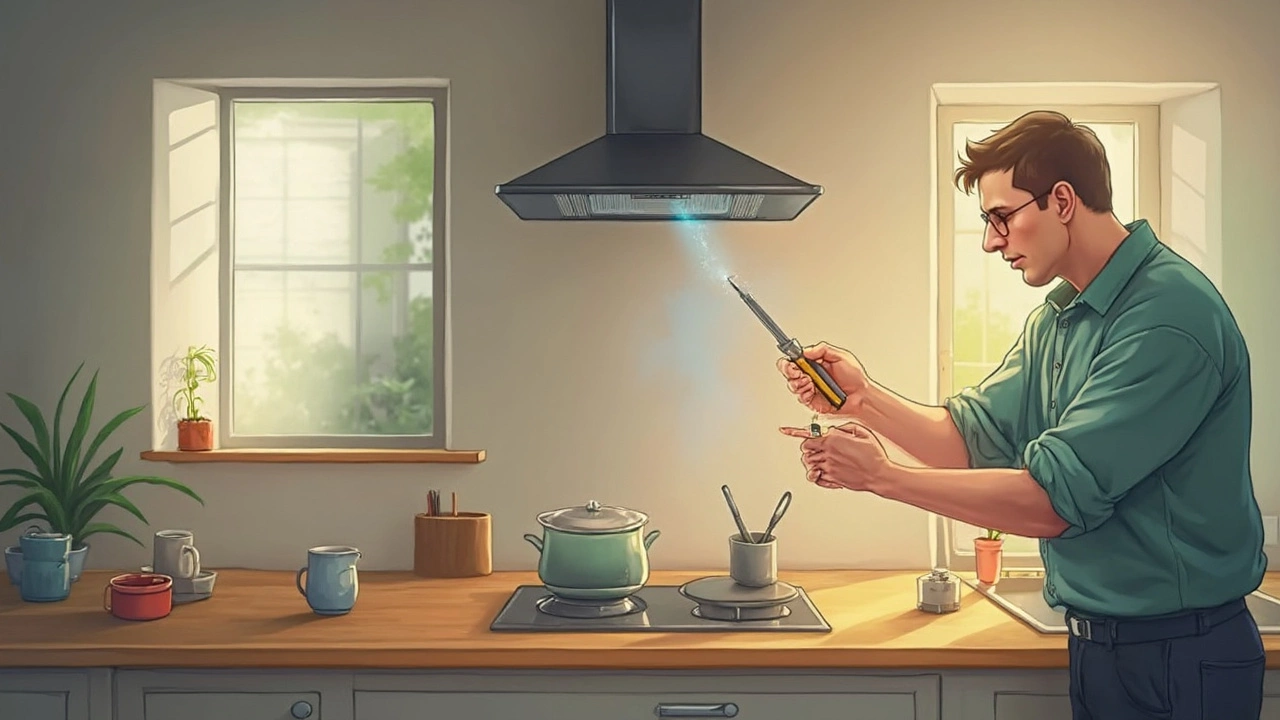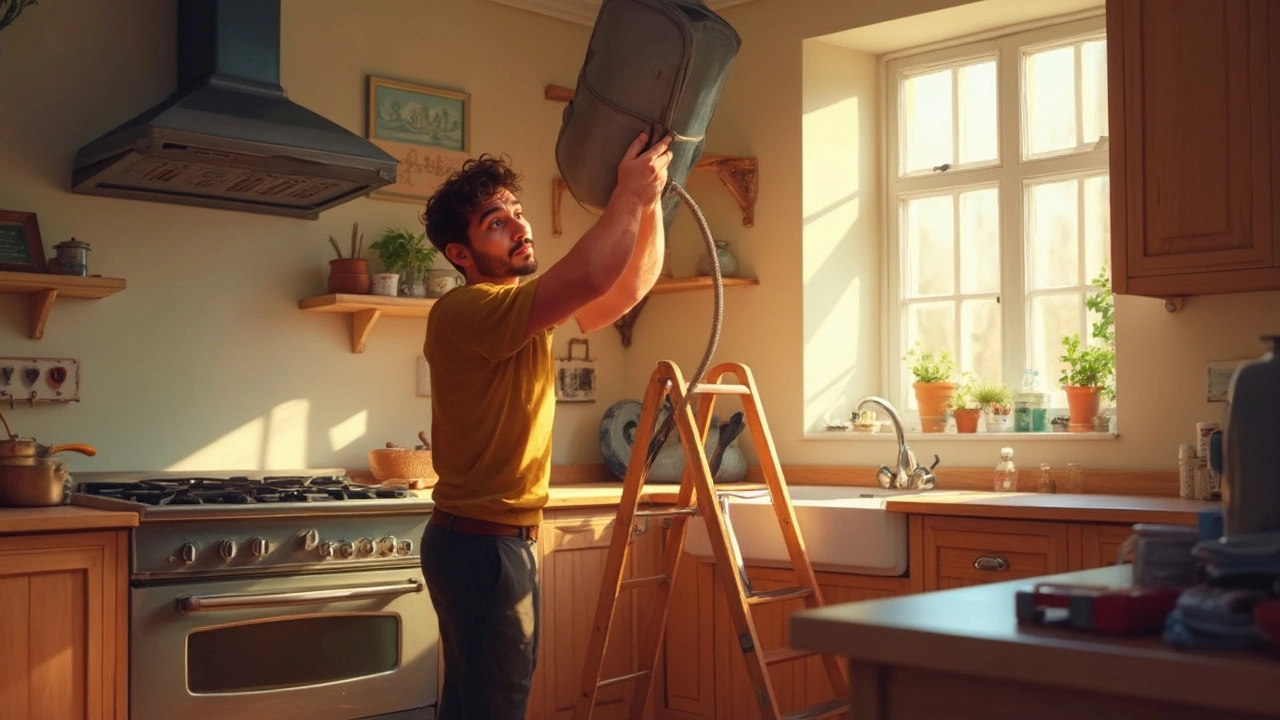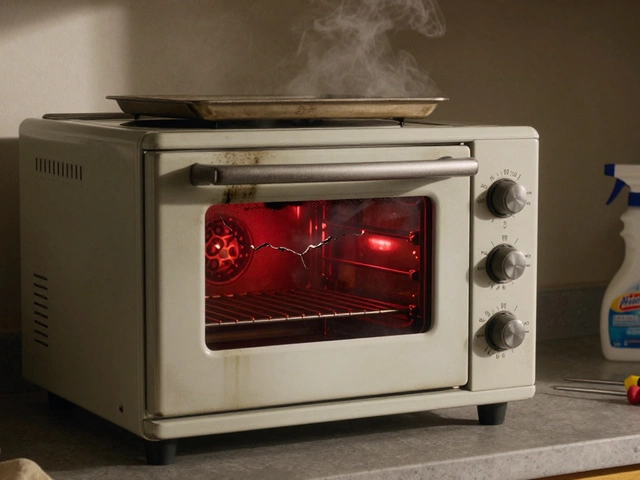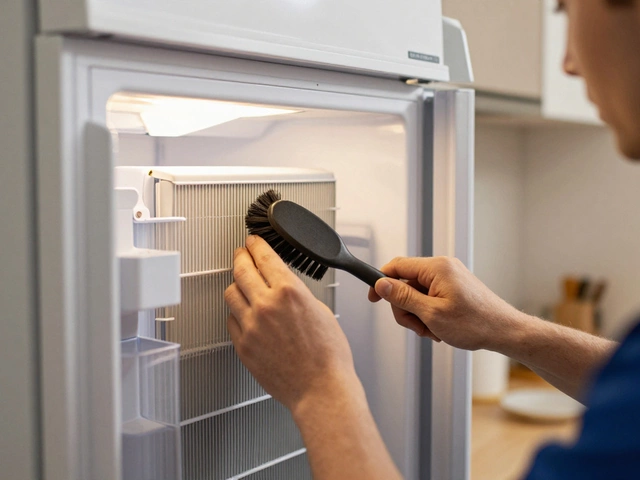Ever heard that strange rattling noise coming from the kitchen, or noticed a persistent odor that just won't go away? Chances are, your extractor fan could be the culprit. Testing it might sound like a job for a pro, but hang tight! It's not as tricky as it seems, and I'm here to walk you through it.
First, why is testing important? Your fan does a heavy-duty job, whisking away smoke, steam, and odors every time you cook. But like any appliance, it can wear out. So, catching problems early can save you time, hassle, and maybe some cash.
To get rolling, you'll want a few basic tools—nothing fancy, just what you probably already have at home. A screwdriver, some cleaning supplies, and a bit of patience go a long way.
Start simple: turn on the fan and listen. Does it hum smoothly, or sound more like a clunky tractor climbing a hill? If it's the latter, there might be something caught in the blades or the motor could be struggling.
- Why Test Your Extractor Fan
- Tools You Might Need
- Simple Tests for Functionality
- Signs Your Fan Needs Attention
- Common Issues and Fixes
- When to Call a Pro
Why Test Your Extractor Fan
Let's face it, keeping our kitchens fresh while cooking up a storm is no small feat. Your kitchen extractor fan is like the unsung hero, working tirelessly to clear smoke, steam, and those not-so-pleasant smells. So, why should we test it regularly?
First off, efficiency is key. Over time, grease and grime can accumulate on the fan's blades and motor, making it work harder. Imagine trying to run while carrying a massive backpack. It's exhausting! By testing and cleaning your fan, you make sure it isn’t working overtime unnecessarily, which can help cut down on energy bills.
Another biggie: safety. The build-up of dirt not only makes the fan sluggish but can also pose fire risks. By testing the fan regularly, you're actively preventing potential hazards. Plus, if you love your kitchen as much as I do, keeping it safe is a top priority.
There's also the fact that nobody likes a noisy fan. If your fan sounds like a jet plane about to take off, something’s up. Pinpointing these issues sooner rather than later can save you from costly extractor fan repair or replacement down the line.
And how about air quality? You wouldn’t want to fill your space with lingering cooking fumes. A well-functioning fan makes your kitchen a pleasant place to cook and hang out.
Regular checks not only boost the lifespan of your fan but keep your kitchen environment comfy and healthy. I mean, who doesn't want that?
Tools You Might Need
Alright, let’s talk about the nitty-gritty of testing your kitchen extractor fan. You don’t need to own a toolbox that weighs as much as a small car. Here are some straightforward tools that’ll help you along the way.
- Screwdriver: You’ll definitely need one of these, especially if you need to remove any protective covers or panels on the fan. A Phillips-head is usually sufficient.
- Cleaning Supplies: Get a degreaser or soapy water handy. Dust and grease can build up over time and cause your fan to bog down.
- Multimeter: This is a handy gadget to test electrical connections. If your fan isn’t powering on, this will help check if the electricity is getting through.
- Flashlight: Kitchens can be dim, especially around under-cabinet fans. A flashlight will help you spot any hidden issues or obstructions.
- Brush: A small brush can be useful for removing debris or cobwebs that might be stuck in the fan blades.
These tools are easily available and odds are, you've already got most of them lying around your house. Investing a little bit of time with these can save you a lot of hassle.
Simple Tests for Functionality
Trying to figure out if your kitchen extractor fan is working the way it should? Let's break it down with a few easy tests you can do without becoming an overnight expert.
First up, the smoke test. Grab a piece of paper and light it on fire, letting it burn for a few seconds before blowing it out. Hold the smoking paper near the fan. This isn't witchcraft—just a simple way to see if the fan is actually drawing air. If the smoke heads upwards and disappears quickly, your fan's likely doing its job. If it lingers or moves away from the fan, there's probably something off.
Next, pay attention to the sound. Turn the fan on and listen. Is it smooth or does it sound like a blender full of rocks? Strange noises usually mean there's an obstruction or that the fan's motor might need some TLC.
And don't forget the tissue trick. Hold a tissue up to the vent with the fan on. If the tissue sticks or gets pulled towards the fan, that's a thumbs-up for good suction. If it drops or merely flutters, you might have a problem.
If your fan has lights, check those too. Flip them on and make sure they're bright and steady. Flickering can indicate wiring issues that often go hand in hand with other functional problems.
Lastly, look up at the exhaust grills. Dust and grime not only make them look bad but can also block airflow. Give 'em a clean and see if that changes anything with airflow or suction strength.
After these tests, jot down any issues you find. A consistent record can be helpful if you need to call in a pro later on. Remember, catching a minor issue now can save you from a costly repair down the line.

Signs Your Fan Needs Attention
Your kitchen extractor fan might not wave a red flag when something's wrong, but it sure has its way of signaling that it needs some TLC. Keeping an ear and eye out can help you catch issues before they snowball into bigger problems.
Here are some telltale signs your fan might need attention:
- Unusual Noises: A properly functioning fan should produce a steady hum. If it starts clattering, grinding, or making rattling noises, it's time to investigate. Often, this can be due to debris stuck in the blades or even a loose fan blade.
- Ineffective Ventilation: When your kitchen still smells like last night's fish dinner despite running the fan, it’s not doing its job. Weak airflow can be caused by a clogged filter or a dying motor.
- Visible Damage: Take a quick peek at the fan blades and filters. Rust, dents, or cracks are red flags that require immediate attention, as they can affect performance and efficiency.
- Flickering Lights: If your fan comes with lights and they flicker or fail, it could indicate an electrical issue. While a bulb may simply need replacing, persistent flickering requires further inspection.
- Strange Smells: Besides poor odor removal, if your fan is emitting burnt or electrical smells, it could signal wiring problems or an overheating motor. Best not to ignore this one as it may pose safety concerns.
If you've spotted any of these symptoms, don’t put off giving your extractor fan some attention. Whether it’s a quick clean or a deeper repair, tackling these issues early on can make a world of difference in your kitchen ventilation.
Common Issues and Fixes
Okay, so your kitchen extractor fan isn't working as you hoped? Don't worry, you're not alone. Here are some of the most common issues folks face, along with some practical ways to fix them. Remember, while you can tackle some of these problems yourself, others might need an expert touch.
Noisy Fan: If your fan is making more racket than a Friday night dance party, it might be due to loose screws or a worn-out motor. Start by tightening all visible screws. If the noise persists, the motor could be on its last legs, and you might need to consider replacing it.
Weak Extraction: When your fan is practically blowing kisses instead of pulling smoke, the filters might be clogged. Give them a good clean with soapy water. If they still look grimy, replacing them might do the trick. Also, check for any blockages in the air duct.
Not Working at All: If your extractor fan is as lifeless as a used battery, start by checking the power connection. Ensure the plug is connected properly, and there aren't any tripped switches in your fuse box. It might sound silly, but it's worth a check before calling a pro.
Greasy Smells: If your kitchen smells more like a fast-food joint than your fragrant home cooking, a deep clean might be in order. Grease builds up over time, affecting fan efficiency and smells. Regular cleaning can prevent this.
Below is a quick table highlighting potential issues and quick fixes:
| Issue | Potential Fix |
|---|---|
| Noisy Fan | Tighten screws or replace motor |
| Weak Extraction | Clean or replace filters |
| No Power | Check power connection |
| Smelly Fan | Deep clean to remove grease |
If these fixes don't solve the problem, it may be time to call in the pros. They can diagnose tricky issues or replace parts that aren't user-serviceable. Remember, regular maintenance can help keep your kitchen extractor fan in top shape and save you from unpleasant surprises.
When to Call a Pro
So you're all set with your screwdriver and elbow grease, only to hit a snag. Happens to the best of us! Sometimes, it's just smarter (and safer!) to call in a professional.
If your kitchen extractor fan is making bizarre noises like grinding or screeching, that could mean the fan motor is on its last legs. Motors can be tricky beasts, and replacing or repairing them isn't your average DIY task. Plus, tinkering with electrical components without the know-how can be risky business.
Notice a drop in performance? Say, your fan isn’t sucking up the smoke and steam like it used to. There might be an issue with the ducting, or maybe there's a blockage you can't easily reach. Professionals not only have the right tools but also the experience to root out these hidden problems without tearing your kitchen apart.
Then there's the electrical hiccup. If the fan won’t turn on at all, check your circuit breaker first—it might just need a flip. But if everything’s in order and there's still no life in your fan, it's time to dial the experts. Faulty wiring isn't something you'd want to gamble with.
Call a pro if you spot any burnt smells or see visible damage. These are red flags for something going seriously wrong under the hood, potentially a fire hazard. A professional assessment could save you a ton of money and hassle.
While it might be tempting to try DIY fixes, consider weighing the risks and benefits. Hiring a pro not only ensures the job's done right, but it also gives you peace of mind. That being said, many pros offer free estimates—so there's no harm in getting that second opinion.





